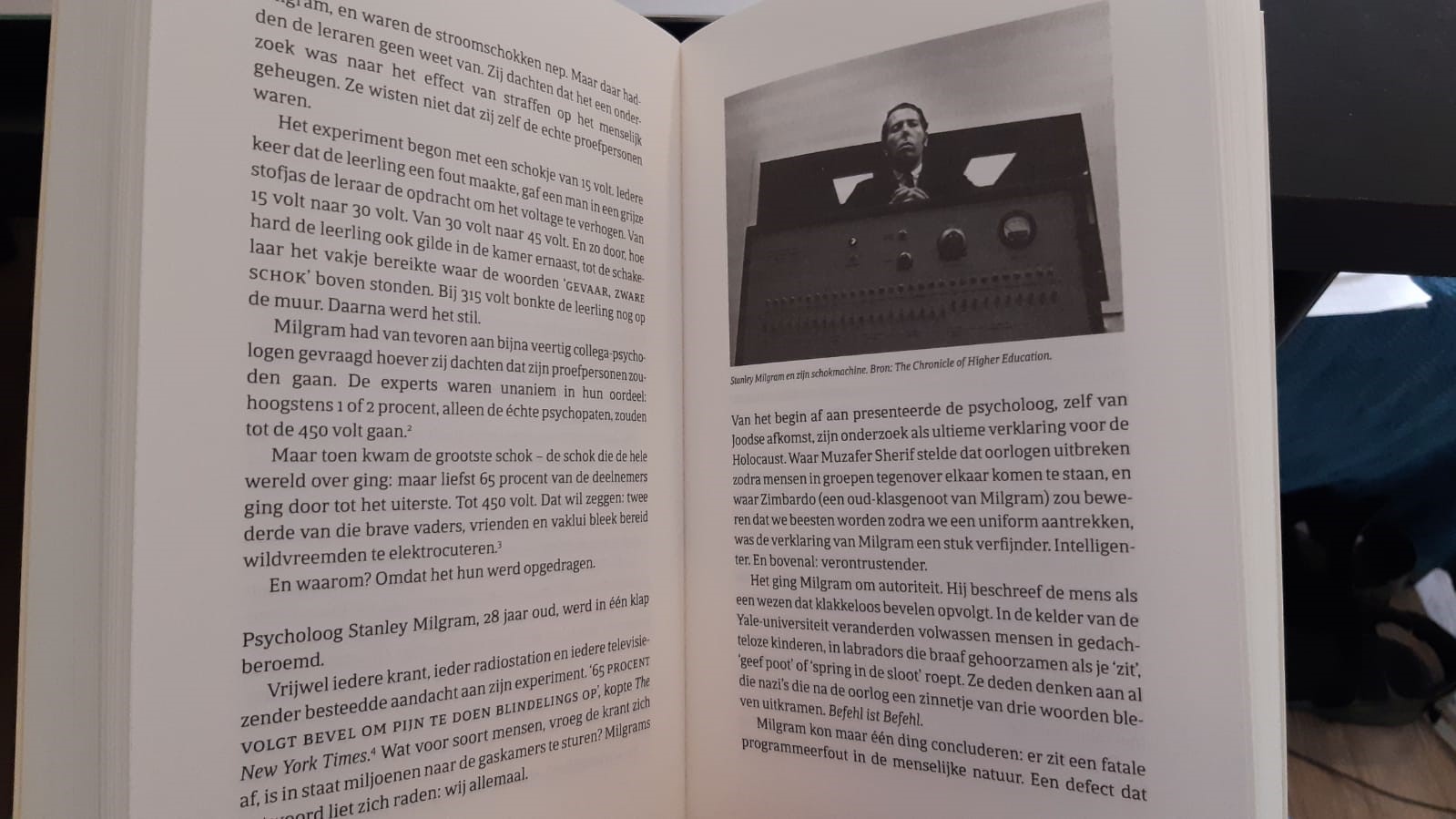DWARS in Debate: a side note on the circular economy
30 March 2019DWARS in Debate is a new series of opinion pieces written by DWARSers on thought-provoking topics. A new opinion piece is published every other Saturday. This piece on the circular economy is written by our treasurer. Happy reading!
Circular economy. In many progressive circles it causes butterflies in the stomach. After all, it would be the solution to the increasing scarcity of raw materials, without actually having to consume. Ideal, in other words. In this article, we will look at circular economy, take a sceptical look at one of the methods to achieve circular economy, and the effect on the power relationship between companies and users.
That we need to move away from our disposable society, I don't need to convince DWARSers of that. According to This interview from the GroenLinks Bureau de Helling shows that, with the current growth in extraction, it would be unfeasible to extract gold from the earth around the year 2059. And let it be precisely the technology sector that is going to suffer greatly from this.
The way we consume causes these resources to run out. Indeed, consuming in itself is not necessarily wrong, as long as the by-products of consuming can be put to good use. After all, our bodies also consume oxygen like crazy, but by neatly returning the residual products, we can recycle it and our consumption does not deplete the oxygen (thanks rainforest!).
The circular economy means that goods are produced in such a way that they can be dismantled back into their original raw materials after use. These raw materials can then be used again to make new goods, perhaps even a different version of the good or another good. Ideally, this process would continue indefinitely, with the same raw materials remaining after dismantling. Because you can reuse the raw materials again, at some point you no longer need to extract raw materials from the earth. Basically, circular economy is just recycling but hip.
Complete dismantling into raw materials can be energy-intensive. An alternative is to produce goods in such a way that they consist of individual building blocks. Those building blocks are then designed to be useful in other goods without modification. This principle is being experimented with in consumer electronics like the Fairphone, for example, where the device consists of components that you can replace separately. [1]
So much for explaining circular economy. In this article, I would like to discuss one of the ways that is being propagated to move towards a circular economy. And that in a way where we do not have to curb our lust for more-more-more, and where no revolution of any kind is needed. And that is that consumers will start renting their goods instead of buying them.
The idea behind it is that producers (often companies, who are out for profit) currently have no financial incentive to design goods so that they: either last a very long time, or are easy to disassemble after use, ideally all the way down to the raw materials. An anecdote is the story of light bulbs. When manufacturers of light bulbs found out that the demand for light bulbs is finite (after all, at some point every inhabitant has a light bulb), and that this negatively affects sales figures, manufacturers started artificially increasing the demand for light bulbs. [2] This by deliberately making the light bulbs of inferior quality, so that you could predict when they would break down, thus creating demand for a new one. We call this 'planned obsolescence'.
Planned obsolescence is everywhere. If planned obsolescence is not a direct strategy, it is indirect as a result of cutting production costs to compete on price levels. In a nutshell, this is the 'yet-not-piece' principle. I leave it to the reader to find a contemporary industry where planned obsolescence is not practised.
Back to the principle of renting. Renting goods as part of the circular economy is already being embraced by a number of manufacturers. It is now possible to buy lighting for an office building directly from a manufacturer, or by renting a washing machine to buy 'washes'. The difference of renting a washing machine as a student, is that the lessor is not the designer of the appliance and therefore has little influence on its sustainability.
Advantages of this method of purchasing services, at the expense of ownership, is that the lessor now has a financial incentive to develop a sustainable product that: lasts a long time and from which as much value as possible can be obtained at the end of its life, in raw materials. When purchasing lighting or laundry, the manufacturer also has a financial incentive to make the required goods energy efficient. After all, it would be the landlord who would have to meet the necessities to provide the service, including the cost of electricity.
To get to the heart of the article, I see a few caveats to this method of achieving circular economy. With renting a property, the consumer is not the owner. After all, the user may only use the product in a way that the landlord gives permission for. The user is normally not allowed to modify anything, or at least must return the product to its original state after use.
In a nutshell, this gives consumers less freedom, and producers more power. And this I think is a serious development. We already see this principle of more power to producers, less power to users in consumer technology.
As an example, I use the 'smart' principle. For some time now, consumer technology devices have mostly had 'smart' in the name. And that is not just a marketing thingy, these 'smart' things have something else in common: you cannot have full control over them. In essence, you don't just buy the device, you 'rent' the service with it. The service that makes it 'smart'. In short, I would argue that a 'smart' device is just a normal device, with an artificial dependency on the manufacturer added.
Indeed, those smart products can mostly only function with the help of services provided by the manufacturer. And manufacturers do their best to ensure that this dependency is maintained, and the community does not develop an alternative. From the SmartTelevision, for example, you can scratch out the word "smart" as soon as the manufacturer stops supporting the device. Smartphones I also see simply as by-evaluated portable computers where an artificial dependency on Google and Apple has been added.
What I mean is that I don't want to think about manufacturers having a say in my lighting or clean laundry. As long as those companies are on the stock market, the company will automatically figure out a way for the manufacturer to abuse the power for more profit, at our expense.
This potential sliding scale that this implementation of circular economy can bring us, that can also be solved to a certain extent by cat-and-mouse game regulation, for example from the EU. But isn't it easier then, as consumers, to just demand goods that are somewhat sustainable, and where you can go to an independent professional if the appliance needs repair? While we're at it, can't we just really start consuming as a society? We can keep applying patchwork to our economic system, but we can also look for a solution that solves multiple problems at once. Circular economy to some extent mainly solves the problem of resource scarcity, but would have little effect on social inequality. In addition, it increases power differences between citizens and companies. We should not want that.
Consumers do not need less control, but more. It should be possible (again) for the community to know how products work, so that people can ensure that goods have the purpose of serving community interests (such as not creating resource scarcity), and not the other way around. It should not be possible for the producer to use power to the detriment of users. The term circular economy exists only as a result of the problems companies themselves create by using their power for profit. Give that power to consumers.
[1] Fairphone participates in circular economy, Fairphone.com
[2] Here's the truth about the 'planned obsolescence' of tech, BBC.co.uk, 12 June 2016


